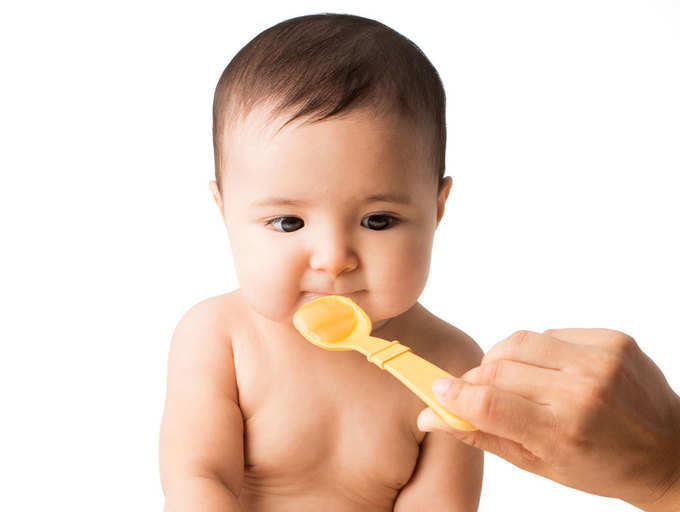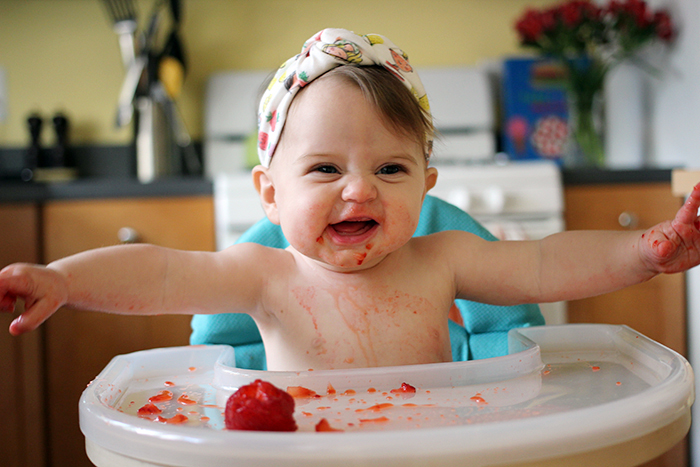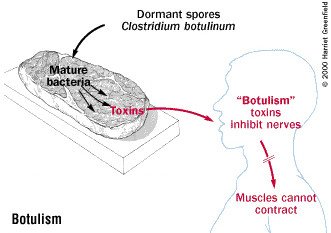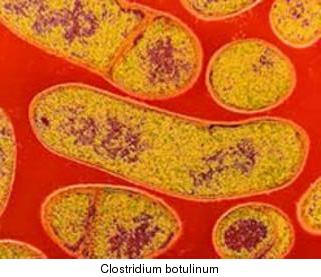botulism in babies timeline
Infant botulism usually affects babies who are 3 weeks to 6 months old. Infant botulism is a rare but serious gastrointestinal condition caused by exposure to Clostridium botulinum C.

Lizzie O Connor Ms Rd On Instagram A Baby Younger Than One Can Get Botulism By Eating Clostridium Botulinum Spores Foun Honey Clostridium Botulinum Spore
Bacteria from the spores can grow and multiply in a babys intestines producing a dangerous toxin.

. In 2010 there were several confirmed outbreaks and cases of botulism connected to consumption of seal blubber and improperly home-canned tuna National Enteric 2010. Infant botulism most commonly affects babies 3 weeks to 6 months old but babies are at risk until they are 1 year old. The bacteria exists in two forms.
For this reason most pediatricians recommend that parents and care-givers avoid giving honey and processed foods containing honey to children until they are 1 year old. Infant botulism is an intestinal toxemia. About 90 percent of infants with botulism are younger than.
Signs and symptoms might include. The disease results after spores of the bacterium Clostridium botulinum or related species are swallowed temporarily colonize an infants large intestine and produce botulinum neurotoxin. These include double vision droopy eyelids and slurred speech.
It occurs in all racial and. From 1999 to 2008 there were 116 botulism outbreaks 91 percent of which resulted from home-canned goods Date et al 2011. It is treated with a different form of antitoxin and discussed in a review of neonatal botulism.
It usually takes 12 to 36 hours after eating contaminated food for more serious neurological symptoms symptoms affecting the nervous system to begin. Before their first birthday their digestive system has not become developed. Boiling food for 10 minutes will usually kill active.
Infant botulism results from the ingestion of the C. Causes of Infant Botulism Babies can get. Signs and Symptoms of Botulism in Babies Symptoms of botulism begin between three to 30 days after an infant ingests the spores.
Foodborne Botulism is caused by the foods that contain the Botulism toxin. Infant botulism usually affects babies between 3 weeks and 6 months old but all babies are at risk until their first birthday. Thats because their mature digestive systems can move the toxins through the body before they cause harm.
The neurotoxin binds to cholinergic nerve terminals and cleaves intracellular proteins necessary for acetylcholine release resulting in bulbar. These botulism deathswidely publicized in mainstream media outletsthreatened to undermine the still-shaky foundation of the canned food business fueling consumers deepest fears about. It can affect babies up to age 1 but is most common between three weeks and six months.
Infants are susceptible to infant botulism in the first year of life with more than 90 of cases occurring in infants younger than six months. Please report any suspect infant botulism case to your local health jurisdiction through appropriate channels. Title 17 California Code of Regulations CCR 2500 2593 26415-264320 and 2800-2812 requires that healthcare providers report known or suspected cases of infant botulism to the jurisdiction in which the patient resides.
Clostridium botulinum lives in the soil so as with nitrates high risk foods include potatoes carrots beets squash spinach and green beans. Botulinum spores and subsequent colonization of the small intestine. To protect your baby from infant botulism avoid exposure.
Infant botulism occurs mostly in infants under 6 months of age. The condition can occur in infants up to age 12 months. Babies are at risk of infant botulism until they reach about 1 year of age.
These bacteria are harmless to older kids and adults. It can affect babies up to age 1 but is most common between three weeks and six months. What is infant botulism IB.
Infant botulism most commonly affects babies 3 weeks to 6 months old but babies are at risk until they are 1 year old. About 100 babies a year in the United States will develop infant botulism. Botulinum spores which germinate into bacteria that colonize in the gut and release toxins.
Bacteria from the spores can grow and multiply in a babys intestines producing a dangerous toxin. Mean age of onset is 13 weeks with a range from 1 to 63 weeks. Another form is infant botulism which occurs when young children usually below the age of 1-year-old ingest Clostridium botulinum.
Its so rare most doctors will go. Infants who acquire botulism range in age from six weeks to nine months with the peak incidence occurring at two to three months of age. As recently as April 2015 25 individuals were.
The initial symptoms of botulism include nausea feeling sick vomiting and diarrhoea often followed by constipation. Difficulty swallowing Muscle weakness Double vision Drooping eyelids Blurry vision Slurred speech Difficulty breathing Difficulty moving the eyes. Infant botulism was first recognized in 1976.
This can generate botulism in the immature gastrointestinal tract and cause a floppy baby. The condition can occur in infants up to 12 months of age because young babies have immature digestive systems. Active bacteria which make the botulinum toxin and spores an inactive form surrounded by a tough shell.
In most adults and children older than about 6 months this would not happen because. Babies are at risk of infant botulism until they reach about 1 year of age. BOTULISM is an often-fatal disease of the nervous system of humans and other mammals that was first recorded in Europe in 1735 and that was suspected of being associated with a German sausage.
Most babies who contract infant botulism are younger than six months old and all are younger than 12 months old. Generally it is occur within 12-72 hours after eating the first sign is sometimes gastrointestinal symptoms such as nausea vomiting diarrhea and abdominal cramping. Symptoms begin to appear a few hours to a few days 2-8 days after ingestion of contaminated food.
Infant botulism usually affects babies who are 3 weeks to 6 months old. Different from foodborne botulism caused by ingestion of pre-formed toxins in food it occurs when infants ingest C.

Four Infants Hospitalized For Botulism After Using Pacifier Funny Pictures For Kids Pacifier Infant

Sengupta Hospital And Research Institute Infant Botulism Happens When A Baby Ingests Bacteria That Produce A Toxin Inside The Body Here Are The Symptoms Facebook

What Happens If You Give Honey To Baby Why Should You Not Give Honey To Babies

From Milk To Solids Baby Food Guidelines For The First Year Baby Food By Age Baby Food Timeline Baby Food Chart

What Parents Need To Know About Botulism

Infants Stages Of Feeding Transitioning From Liquids To Solids The Warren Center Non Profit Organization In Richardson Texas

Is Your Baby Constipated Babycenter

How To Start Your Baby On Solids An Infographic Smart Nutrition With Jessica Penner Rd Baby Food Chart Baby Food Recipes Smart Nutrition
A Breastfeeding Story Breastfeeding Through Infant Botulism

Botulism Guide Causes Symptoms And Treatment Options

Bee Approved Unit 2 Failsworth Ind Est Moston St Manchester 2022

Welcome To The Infant Botulism Treatment And Prevention Program

What Parents Need To Know About Botulism

The Worst Foods For Babies Babycenter

Babydoc Club Uk New Parents Did You Know Sweet Honey Can Be Harmful For Baby Yes It S Yummy In Porridge But Has Been Linked To Rare But Serious Infant Botulism The


